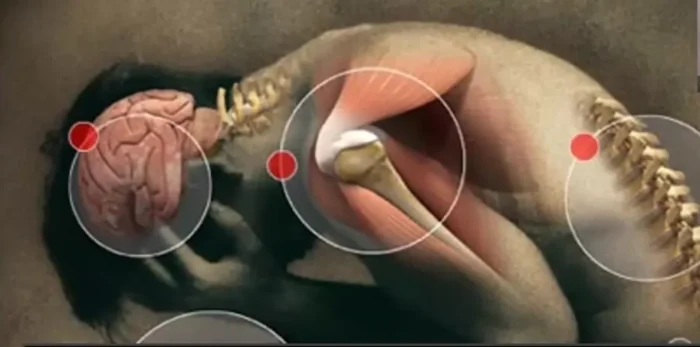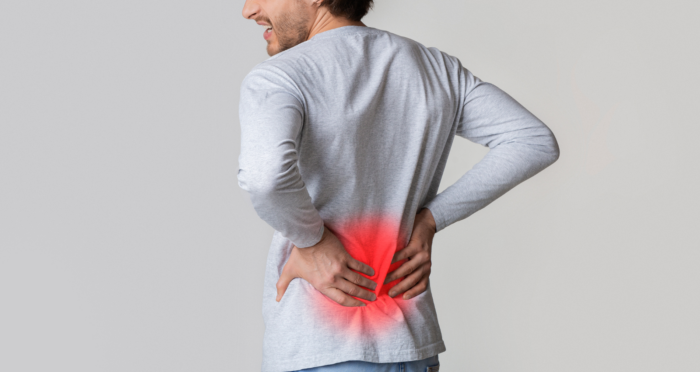If you’re experiencing chronic pain, you know how it dramatically impacts your mood and ability to get through the day. Though there is a relationship between mental health conditions and chronic pain, mental health issues usually arise secondary to the pain condition. The majority of chronic pain patients (CPP’s) suffer from major depression caused by the pain condition. Mood conditions like anxiety or depression can certainly impact our impression and tolerance of pain, but they are not the cause of pain. However, it is still important to understand the interplay of psychological difficulties and pain in the life of CPP’s.
The Connection Between Mental Health and Chronic Pain
Mental health and chronic pain are closely intertwined. Research has shown that psychological factors can influence chronic pain and its treatment, but just as importantly, chronic pain commonly leads to significant mental health issues. Here are some key points to consider:
- Chronic pain and Depression: At least 60% of CPP’s will have major depression, and for most, it will be their first major episode. The sense of being broken, and unable to participate in work or family life as they had before, leaves most CPPs feeling guilty and hopeless. This issue is commonly overlooked or misunderstood and therefore goes untreated. Untreated depression decreases the effectiveness of pain treatment across all modalities, including surgery, injections, and medications.
- Chronic Pain and Anxiety: Anxiety is very common following the onset of chronic pain including accentuation of any previous anxieties. Common anxiety symptoms include panic attacks, rumination, catastrophizing, fears regarding treatments and OCD. These symptoms also tend to be overlooked and underdiagnosed/treated in pain patients.
- Chronic Pain and Stress: Stress can exacerbate pain and pain perception. Chronic pain itself is a substantial stressor which can lead to a persistent fight or flight response, anxiety, muscle tension, GI difficulties, sleep disturbance and irritability.
- Psychosomatic Symptoms: It is commonly believed that pain can be one of the symptoms people manifest when psychologically challenged. Though it is true that pain perception and increased pain reception can intensify with mood alteration, most commonly these are relatively small changes and are not the cause of chronic pain. Chronic Pain is much more likely to cause a psychological issue than vice versa.
How Pain Influences Mental Health
- Depression: Major depression is a normal reaction to chronic pain. Persistent pain can lead to feelings of hopelessness, sadness, despair, and a lack of interest and ability to participate in activities once enjoyed. CPPs have a much higher rate of suicide than the general population.
- Anxiety: The intensity, unpredictability, and poor prognosis of chronic pain can cause significant anxiety. Anxiety is also common due to CPP related loss of relationships, work, role, and identity
- Social Isolation: CPP’s are commonly isolated from society and even family. The inability to participate in daily activities with connections and relationships falling away can make CPPs feel “invisible”.
- Cognitive Impairment: Pain affects concentration, memory, decision-making, and the ability to focus, plan, and follow through. Pain can cause cognitive blunting and dullness. The cognitive impact from pain is far greater than any impact from pain medications.
How Mental Health Influences Pain Perception
Chronic pain commonly generates mental health issues, but it is rare for mental health issues to initiate chronic pain.
The nervous system (brain, spinal cord, etc) permits the sensation of pain to exist. It is also the system that dictates mood and other psychological issues. It has become clear that there is substantial overlap in the nervous system in how we experience, understand and manifest both pain and mood.
- Neurochemical Changes: Depression, anxiety, trauma, and chronic pain use many of the same nervous system regions and neurochemical pathways. Research on these regions and pathways is ongoing, and some newer medications work on both, with beneficial effect.
- Mood impact in CPP: Depression can cause low energy, hopelessness, poor self-esteem and suicidal thoughts. Anxiety can cause agitation, sleep disturbance, irritability and physical tension. Coping with chronic pain is made more difficult by the added symptoms of depression or anxiety. Mood symptoms can blunt the treatment of chronic pain and reduce the response to pain treatments.
- Increased Sensitivity: Psychological distress can increase the sensitivity of the nervous system to pain signals, a phenomenon known as central sensitization.
- Cognitive Factors: Negative thoughts can amplify the experience of pain. Catastrophizing, or expecting the worst, can make pain feel more intense.
Comprehensive Treatment Strategies for Chronic Pain
Addressing both mental health and physical pain requires a whole person approach that considers the interconnected nature of these conditions. Our treatment strategies include:
- Medication management: our team consists of practitioners trained in both Psychiatry and Pain Management. We design patient-specific treatment plans and constantly monitor the effects of each medication. We treat pain and psychiatric disease concurrently and prioritize patient function. If opioids are needed, they are used. Complex care is our norm.
- Diagnostic evaluations: Pain treatment can be complex and we are trained to explore diagnostic and treatment avenues without bias or generic solutions.
- Psychological therapies:
- Cognitive-Behavioral Therapy (CBT): CBT helps patients develop coping strategies to manage pain and reduce its psychological impact. It focuses on changing negative thought patterns that can exacerbate pain.
- Mind-Body Techniques: Practices such as mindfulness, meditation, and yoga can help reduce stress and improve pain management by promoting relaxation and mental well-being.
- Support Groups: Connecting with others who experience similar challenges can provide emotional support and practical advice for managing pain and mental health.
- Lifestyle Modifications: Regular exercise, a balanced diet, and sufficient sleep can improve both physical and mental health, reducing the overall burden of pain.
- Pain Management Programs: These programs often include a combination of medical treatments, physical therapy, and psychological support to address all aspects of pain.
Encouragement to Seek Comprehensive Psychiatric Services
If you or someone you know is struggling with the dual burden of chronic pain and mental health issues, it’s important to understand that comprehensive treatment is available. Our psychiatric services are designed to address both the psychological and physical aspects of pain, providing a whole person approach to improve overall well-being.
Our team of experienced psychiatrically trained pain management clinicians can help you develop a personalized treatment plan that includes therapy, medication, and lifestyle recommendations to manage your pain and mental health effectively. Don’t let pain control your life—reach out to us and start your journey towards improved mental and physical health today.



